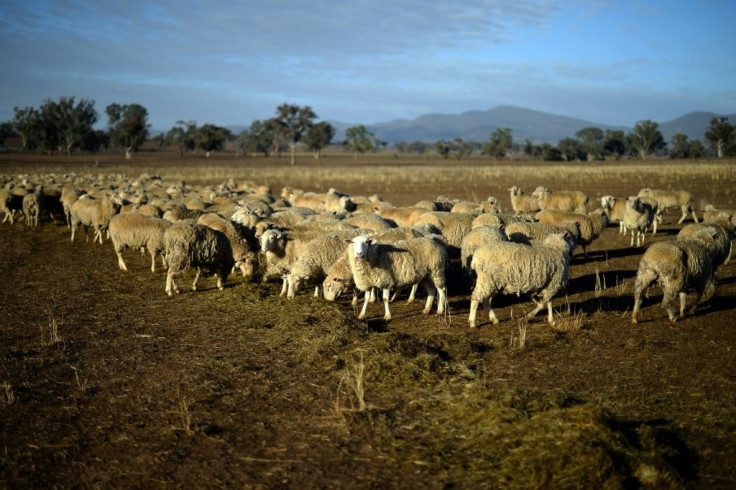Drought Drives Australia's Sheep Flock To Record Low

Years of drought in Australia's east has caused the national sheep flock to shrink to the lowest levels since records began more than a century ago, agricultural figures revealed Thursday.
Farmers sold-off or disposed of Aus$21 billion (US$13.9 billion) worth of livestock in total last year, as the nation's sheep count fell to 66 million, its lowest level since at least 1905.
"Worsening drought and lack of feed in the eastern states forced many sheep and cattle producers to destock" the Australian Bureau of Statistics said, pointing to a seven percent fall in numbers in the 2018-19 financial year.
The worst drought in living memory -- which continues to grip large parts of the country -- also halved the value of the nation's cotton crop and sliced more than 80 percent from the value of its rice, the bureau's director of agriculture statistics Sarah Kiely said.
Sheep -- and in particular wool -- was a mainstay of the Australian economy for much of the last 150 years.
The latest figures do not include the period around devastating bushfires which burnt through swathes of bush and farmland in late 2019 and early 2020.
Recent rains in some areas have given hope to farmers ahead of the antipodean winter, with many confident enough to begin planting crops for the first time in years.
But trade disputes with China, including threats of a boycott of Australian exports and huge tariffs on barley, still loom over the sector.
Last week China slapped Aussie barley with an 80 percent tariff over allegations of dumping into its market, a move set to cost at least Aus$500 million (US$327 million) a year, according to five of the nation's grain growers.
© Copyright AFP {{Year}}. All rights reserved.





















